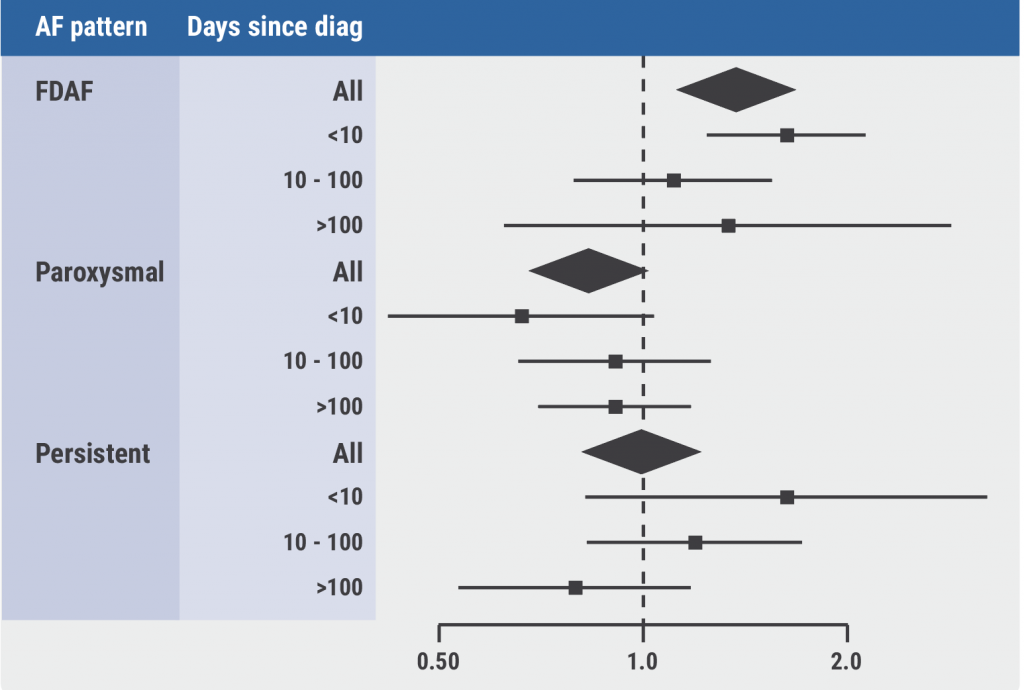Patients hospitalised for acute heart failure (HF) who were treated with empagliflozin showed significant clinical benefits over patients who were treated with placebo in the phase 3 EMPULSE trial. Empagliflozin therapy was associated with fewer deaths and HF events. Moreover, the agent showed a favourable safety profile in this vulnerable population [1].
Empagliflozin is a sodium-glucose co-transporter 2 (SGLT2) inhibitor that has demonstrated efficacy in the treatment of patients with chronic HF [2,3]. The randomised, double-blind, placebo-controlled, phase 3 EMPULSE trial (NCT04157751) aimed to assess the efficacy and safety of empagliflozin in hospitalised patients with acute HF. De novo or decompensated hospitalised patients with a primary diagnosis of acute HF were eligible for inclusion, regardless of ejection fraction or diabetes status. After stabilisation, patients were randomised to 10 mg empagliflozin once daily (n=265) or placebo (n=265). Kansas City Cardiomyopathy Questionnaire Total Symptom Score (KCCQ-TSS) at baseline was approximately 38, indicating severe disease in the study population. The primary endpoint was a composite of death, number of HF events, time to first HF event, and change from baseline KCCQ-TSS, assessed by stratified win ratio following the aforementioned sequence. The 90-day results were presented by Prof. Adriaan Voors (University of Groningen, the Netherlands).
Participants receiving empagliflozin demonstrated an increased probability of experiencing clinical benefit (53.0%) compared with patients receiving placebo (39.7%; P=0.0054). Death was observed in 4.2% and 8.3% of the patients in the empagliflozin arm and placebo arm, respectively. Moreover, HF events were more common among placebo receivers (14.7%) than in empagliflozin receivers (10.6%). Subgroup analyses displayed consistency over the predefined strata, in particular regarding HF status (de novo or decompensated chronic), diabetes status, and ejection fraction (≤40% and >40%). In addition, the quality of life after 90 days was enhanced in patients receiving empagliflozin, which was reflected by a mean 4.5-point difference in KCCQ-TSS between the empagliflozin arm and the placebo arm (P=0.0347).
The safety profile of empagliflozin was favourable. Any adverse events were reported in 70.0% of the patients in the empagliflozin arm and in 77.3% of the patients in the placebo arm. Serious adverse events were less common among empagliflozin receivers (32.3%) than in placebo receivers (43.6%). Acute renal failure was observed in 7.7% and 12.1% of the patients in the experimental arm and placebo arm, respectively.
Discussant Dr Nancy Sweitzer (University of Arizona, AZ, USA) added that empagliflozin was efficacious in this population, regardless of background therapy. “De novo patients were not treated with guideline-recommended therapies but experienced equal benefits from treatment with empagliflozin. Therefore, I think we should not withhold this agent while other drug classes are being initiated and optimised. However, it is interesting to investigate how empagliflozin interacts with other drug classes, for example with regard to renal function, in future studies.”
- Voors AA, et al. Empagliflozin in patients hospitalized for acute heart failure: the EMPULSE trial. LBS05, AHA 2021 Scientific Sessions, 13–15 November.
- Anker SD, et al. N Engl J Med 2021;385:1451–1461.
- Packer M, et al. N Engl J Med 2020;383:1413–1424.
Copyright ©2021 Medicom Medical Publishers
Posted on
« CHIEF-HF: Canagliflozin improves health status in heart failure Next Article
Empagliflozin efficacious in HF patients with preserved ejection fractions ≥50% »
Table of Contents: AHA 2021
Featured articles
The scope of remote healthcare in hypertension and hyperlipidaemia
Atrial Fibrillation
New developments in remote diagnostics and monitoring of AF
Head-to-head: Efficacy of dabigatran versus warfarin on cognitive impairment
Posterior left pericardiotomy safe and effective in reducing atrial fibrillation
LAA ligation did not reduce recurrent atrial arrhythmias in persistent AF
Equal benefits of early rhythm control in AF subtypes
CVD Risk Reduction
Remote healthcare programme improves hypertension and lipid control
Novel oral PCSK9 inhibitor shows promising results for hypercholesterolaemia
REVERSE-IT: Interim analysis shows promising effect of bentracimab on ticagrelor reversal
No significant effect of aspirin on reducing cognitive impairment
Milvexian phase 2 data supports safety and efficacy for VTE prevention after total knee replacement
Network meta-analysis observes no clear effect of eicosapentaenoic acid on CV outcomes
Heart Failure
Empagliflozin efficacious in HF patients with preserved ejection fractions ≥50%
EMPULSE: Empagliflozin improves outcomes of acute heart failure
CHIEF-HF: Canagliflozin improves health status in heart failure
DREAM-HF: MPC therapy for HFrEF did not meet primary endpoint
Therapeutic approaches in heart failure with diabetes
Acute Coronary Syndrome
Ticagrelor cessation: early CABG non-inferior to delayed surgery
Distinguishing patients before AMI based on plaque morphology
Vascular Diseases: PVD
Rivaroxaban regimen beneficial after revascularisation for claudication
LIBERTY 360 shows quality-of-life improvements after peripheral vascular intervention
Deficient treatment outcomes after PVI in Black and low-income adults with PAD
REDUCE-IT: Cardiovascular risk reduction with icosapent ethyl in PAD
Vascular Diseases: CAD
Long-term reduced risk of CV events with ticagrelor plus aspirin after CABG
Early surgery outperforms conservative management in asymptomatic severe aortic stenosis
External support device for SVG grafts in CABG surgery shows promise
COVID-19 & the Heart
Blood pressure control disrupted during the pandemic
Icosapent ethyl did not reduce the risk of hospitalisation in COVID-19
Neutral effect of P2Y12 inhibitors in non-critical COVID-19 hospitalisations
COVID-19 mRNA vaccination benefits outweigh the risk for myocarditis
Other
2021 Guideline for Chest Pain: Top 10 takeaways
Accurate ejection fraction assessment in paediatric patients via artificial intelligence
Concomitant tricuspid annuloplasty reduces treatment failure in moderate tricuspid regurgitation
Related Articles
DREAM-HF: MPC therapy for HFrEF did not meet primary endpoint

Equal benefits of early rhythm control in AF subtypes
External support device for SVG grafts in CABG surgery shows promise
© 2024 Medicom Medical Publishers. All rights reserved. Terms and Conditions | Privacy Policy
HEAD OFFICE
Laarderhoogtweg 25
1101 EB Amsterdam
The Netherlands
T: +31 85 4012 560
E: publishers@medicom-publishers.com

